Share
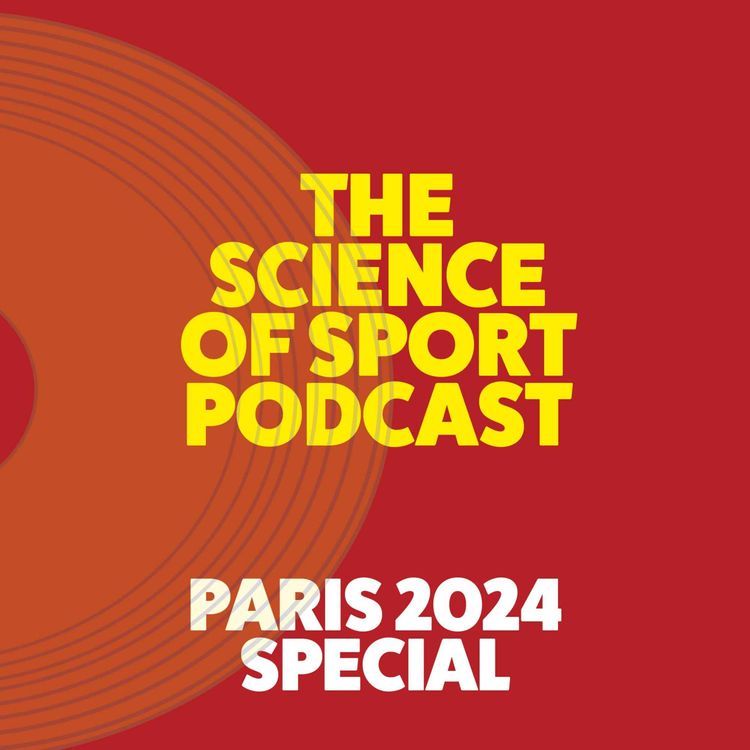
The Real Science of Sport Podcast
Paris 2024 Daily: Day 7 - Biles soars, Women's boxing controversy and the Track programme begins
Simone Biles established herself as the world's best gymnast in Paris, but it wasn't without a challenge from Brazil's Rebeca Andrade. The first golds were handed out in the track and field programme, won by Ecuador and China in the 20km race-walking events. We talk about how race walking is judged, and whether high tech shoes make a difference to walkers as they do to runners? In the news, athletes aren't happy with the food in the village, tennis legends are out and retiring, and the IOC flexes its plastic muscles in realms of doping control and fair and safe women's sport. Plus, we look ahead to the opening night in the Track programme, where the 10000m gold should be fought out between east African giants from Uganda, Ethiopia and Kenya.
Show notes
Here's where you go to sign up for Patron, with a small monthly pledge, which then gives you access to our Discourse forum where other listeners share their thoughts and responses to these issues
More episodes
View all episodes
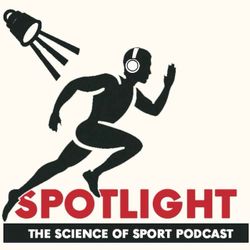
Winter Olympics Review: Winners, Losers and Our Ice-Cold Takes
01:20:42|As mentioned, if you want to be a supporter of the podcast, and enjoy the insight that Gareth and I share with listeners on our world-best sports science forum, you can become a member by clicking this link to make a small monthly donation.Show notesThe Milan Winter Olympics concluded last weekend, and in this wrap show, Gareth and Ross look back at the overachievers, the underachievers, and the big stories from Milan, offering insights on who won, lost and captivated our attention. We crown the King of the Games, the best and worst-performing countries, nominate our best performances across the range of sports, from endurance to figure skating (via "stoke"). We also share our biggest disappointments, reflections on what the Winter Games need most, and give our overall ratings to an excellent, thoroughly enjoyable Games.LinksAn article on the waxing woes of every team apart from Norway'sItalian article on Tommaso Giacomel's cardiac arrhythmia and ablazione cardiaca (google translate do your thing)Some Mikaela Shiffrin interviews - speaking about winning without her influential father and a more upbeat one on the US morning talk show sceneFederica Brignone on her injury and comeback to win Olympic goldGareth said not to watch this, but in case you wish to ignore his advice, here's Kirsty Coventry and Bugs BunnyThe highest paid female athletes in the world - Eileen Gu is 4, but look at the split on vs off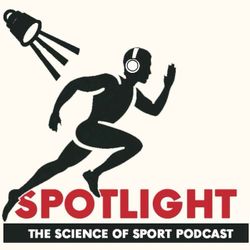
Winter Olympics: Nutella "Doping" / Malinin's Traumatic Moments / Klaebo and Stolz Dominate / Ski Mo's Flop
01:15:45|Become a Supporter - it's worth it!Enjoying the Real Science of Sport? Show your support with a monthly pledge, become a Member of our Supporters Club, and get way more value from the discussions after the shows, in our world class community chat rooms!Show notesThe Winter Olympics are a weekend from concluding, and so much has happened, it's been hard to keep up. But we try! In this show, we look at the Nutella doping defence of an Italian biathlete. We discuss the dramatic performance of favourite Ilia Malinin, who confessed to "traumatic thoughts" before his ill-fated free-skate performance in Milan.There was no scoring controversy in that men's figure skating programme, but there have been in other events - Ice Dance and Big Air were affected by allegations of nationalistic bias, and then in the moguls, there was tie for gold, leading Ross to wonder about the credibility of a scoring system that uses subjective scoring to produce a tie down to the 1/100th of a point. Just share the gold, we reckon!One athlete who has had no problems, either with pressure or opponents, is Johannes Hoesflot Klaebo, now the most decorated Winter Olympian ever, and basically unbeatable in shorter races. Can he deliver the 50km too? Another who has delivered on the promise is Jordan Stolz, though he was denied the 1500m speed skating gold. Reports of his cycling process have led to speculation that he could have a great career in cycling, should he fancy it. We discuss the barriers to that transition, and wonder how he might go about it.Away from the Games, there's an indoor world record in the 800m, which augurs well for Keely Hodgkinson's longer term aspirations of the outdoor World Record, and which puts Femke Bol's aspirations into perspective. The head to head rivalry may be a season or two away - we explain why Bol needs more than a single season.And Finally, we return to the snow, where Ski Mountaineering made its debut at the Olympics and left us feeling considerably underwhelmed and disappointed in the structure of the event.LinksThe Nutella defense - report on Rebecca Passler's doping caseThe CAS 'non-decision' on Passler's case, but with a few details of what was being argued in her defenceA New York Times article on Ostarine and accidental doping ($ paywalled)The research paper that arose out of the "sweat contamination" defence against an ostarine positive testArticle on Malinin's free skate dramaDavid Epstein's article on Malinin and chokingJordan Stolz the cyclist: An article discussing his prospects on two wheelsHodgkinson's 800m World Indoor Record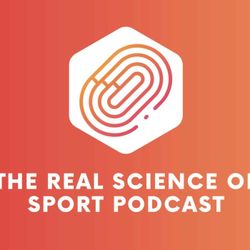
6. Inside the Mind of a Winter Olympian: The Science of Stoke
01:39:16||Season 8, Ep. 6If you love the podcast, and want to show your support, a monthly pledge on Patreon is the way! We'd be absolutely stoked if you did! Show notesLesley McKenna is a pioneer in the world of action sports. A three-time Olympian (2002, 2006, 2010), she represented Great Britain on the snowboarding World Cup circuit, becoming the first GB snowboarder to win a World Cup event, and led the World Cup standings as the number 1 ranked snowboarder at the peak of her powers. Following her retirement, she transitioned into coaching and full time management, and was Team Manager of the GB Park and Pipe team from 2014 to 2022. As a veteran of six Olympic Games, she shares unique insights into the preparation, training and mindset of Winter Olympic athletes in the action sports.She further expanded her understanding by embarking on a PhD with Leeds-Beckett University, that studied and explained how snowboarders and other action sports athletes develop skills, manage risk, and perform in high-pressure competition environments while staying true to the culture and authenticity of their sport This led to the development of a framework she called "The Risk Aesthetic Framework", which explains how action sports maintain meaning, creativity, and community in the competitive cauldron of the Olympic Games.In this wide-ranging interview, Lesley draws from her experience and her research to share fascinating insights that ultimately reveal the science of "the stoke", and the hidden side of some of the most spectacular, jeopardy-filled sports in the world.LinksHere is Lesley's website with more detail on her frameworkThe documentary Lesley recommended is called Pipe Dream - you can watch it on NetflixFancy a "backside air" - here's Lesley teaching you the way!A documentary about Lesley with some footage of her in action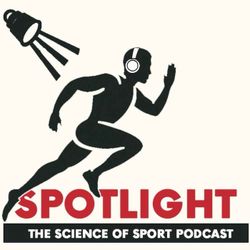
No Sports Advantage for Trans Women? / Khelif Defiant but in Denial / Bol's 800m debut
01:02:11|The conversation continues on Discourse, for our Science of Sport Supporters. Join now with a small monthly pledge for access to the best sports science discussion community aroundIn the Spotlight this week, we revisit a recurring theme to explore whether a paper claiming no advantage for males who identify as women has any validity, and we cover some news from the world of sport and health.17:31 Our main focus is on a systematic review, published last week, claiming that evidence suggests no physical differences and thus no sporting advantages in trans identified males. We explain why the paper is misleading, and how the authors and journal ignored very obvious flaws in the research to arrive at their conclusion.1:31 We also discuss an interview given by Imane Khelif in which the Algerian boxer confirms what was already widely known about male advantage, as well as some surprising details about suppressing testosterone, and defiance and denial about male advantage.36:44 In sports action, Femke Bol made an 800m debut indoors - we discuss the performance and what it tells us of her ceiling.43:20 Serena Williams is making a return, but appeared in a Superbowl halftime advertisement to promote ozempic for weight loss, which triggered a wave of criticism and fear about the displacement of exercise, diet and responsibillty for weight loss. We consider the arguments.50:52 Continuous glucose monitors are in the spotlight, after a range were recalled for providing inaccurate data, which has lead to death and injury in people misled by dodgy data. We discuss the matter in the context of how wearables have to, at a minimum, provide accurate information when decision making will change on the basis of that information.And finally, a Lance Armstrong movie is imminent, and Hollie Davidson referees a Six Nations match at the weekend. We end with brief thoughts.LinksThe systematic review on transgender womenA previous systematic review, minus the meta-analysis, that reaches the opposite conclusion by focusing on non cross-sectional researchThe Imane Khelif interviewThe Serena Superbowl AdvertStory on the recall of continuous glucose monitorsHollie Davidson interview ahead of her Six Nations debut this weekend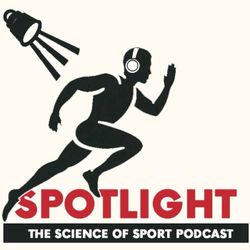
Winter Olympic Spotlight: Vonn('s gate) and risk / Cross Country Klaebo / Speed Skating Unfairness / Penis-gate
53:37|Become a Science of Sport Supporter, and get access to our Discourse chat community, and to our upcoming Real Science of Sport Live Chats. A small monthly pledge or donation on Patreon is all it takesThe opening five days of the Milan Cortina Winter Games have produced some spectacular performances and notable talking points. The Spotlight reveals some insights on those performances. We ask whether Lindsay Vonn's decision to race only 9 days after a ruptured ACL was a justifiable, correct one? Gareth has a new favourite sport - Cross-country skiing, dominated in spectacular fashion by Johannes Hofslot Klaebo and Sweden's women. Gareth is less enamoured with figure skating, but we discuss subjective sports and how coverage has improved to offer insights on scoring, and where it can continue to advance. We commend the coverage and footage from the Games, with revolutionary, spectacular drone footage. Speed skating is also in the Spotlight, and we share some insights that have been missing from the coverage, related to pacing. We also discover that some researchers suggest that the lane allocation offers significant advantages in some events.And finally, we end on 'penis-gate', the story (or is that a non-story) about the search for ski-jumping distance through the most literal application of 'marginal gains' you can imagine.That, and more, in the first of our Winter Olympic Spotlight shows.LinksThe story of ski jumpers injecting acid into their genitals for jumping gainsThe Guardian's coverage of Lindsay Vonn's dramatic downhillOur supporters weigh in on Vonn's decision to race, with some insightful comments and questions (supporters only - pledge above for access!)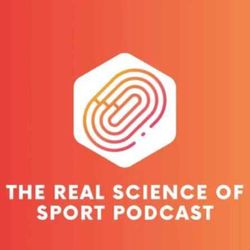
5. WINTER OLYMPIC SPECIAL: Speed Skating 101
01:20:07||Season 8, Ep. 5Professor Florentina 'Fleur' Hettinga loves speed skating. Not only has she competed as an athlete in the discipline, but she has also researched many elements of the sport, from the physiology of the top athletes to the technical expertise and equipment needed to be among the best. Based in Amsterdam, Hettinga is at the centre of Dutch speed skating excellence, serving as Head of Department of Human Movement Sciences at the Vrije Universiteit and as a professor at the Faculty of Behavioural and Movement Sciences. Hettinga talks Mike and Ross through the fascinating equipment used in modern speed skating, the technical skills that need to be honed to be competitive, and the unique, non-event-specific training that many of the top speed skaters employ. If you're watching the 2026 Milano Cortina Olympic Games, start here.SHOW NOTES:Fleur Hettinga’s research profile The training insights of Nils van der Poel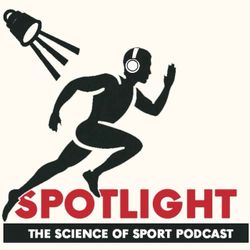
A VO2max of 101: Fantastical Physiology? / Australian Open Wrap / Contact Sport Dilemmas
01:20:59|Show NotesOn the Spotlight this week, we wrap up the Australian Open where dramatic semi finals saw Alcaraz overcome cramp (to Zverev's dismay), Djokovic overcome Sinner (to Ross' prediction dismay), and then Alcaraz overpower Djokovic to win a career Grand Slam. Elana Rybakina won the women's title, powered by a dominant serve and a few harsh, but helpful words from her coach.Then it's a concussion and head injury discussion, with a Spotlight on football and rugby. Should young children be tackling and heading a football? We explore those debates and discover that bans and delays don't play out quite the same way in the two sports, but that many unanswered questions remain. A recent paper by Ross and some colleagues finds that rugby players wearing headgear are more likely to suffer injuries than those not wearing headgear. An odd finding, but confounded by history and bias, as a lesson for how research limitations play out.And finally, does Karsten Blummenfelt really have a VO2max of 101 ml/kg/min? The Norwegian triathlete published that number earlier in the week, and it was met with skepticism bordering on ridicule. We discuss why the number isn't physiologically believable, what it means, and how errors in measurement might occur.Finally finally, if you enjoy the show and want to show your support, then become a Supporter with a small monthly donation, and you'll also get access to our Community Chat, and, as discussed in this show, upcoming Live Event Coverage.LinksThe Contact Conundrum: Are We Introducing Contact at the Correct Time in Youth Sports?Wearing Regulation Soft-Padded Headgear Does Not Reduce the Risk of Head Injuries in Professional Men's Rugby Players: An Observational Cohort StudyThe Spennymoor Heading Trial ArticleArticle on Blummenfelts 101 VO2max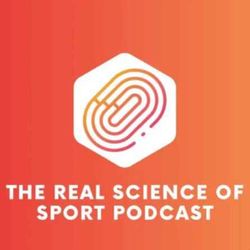
4. WINTER OLYMPIC SPECIAL: An Insiders Guide to Cross Country Skiing and Biathlon
01:32:33||Season 8, Ep. 4Norwegian Oyvind Sandbakk is a specialist in the brutally tough world of cross-country skiing and biathlon. He is Sports Director at the Norwegian School of Elite Sports and a Professor II at the School of Sport Science at the UiT The Artic University of Norway. A former World Cup cross-country skier himself, Oyvind has worked with many of Norway's top athletes in Nordic sports. We delve into the technical details of both disciplines (including the dark art of waxing!), the gear involved in both sports, the physiology required to be one of the best in the world and what to watch for at the 2026 Winter Olympics.Show notesThe article referred to in the show about the importance of waxing, and the number of skis the athletes haveHere is Oyvind's research profile page with his university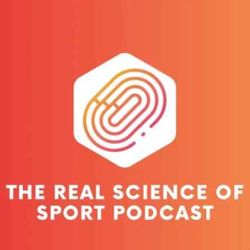
3. WINTER OLYMPIC SPECIAL: The Beauty and Drama of Figure Skating
01:32:14||Season 8, Ep. 3Figure skating is one of the most popular sports at the Winter Olympics as it combines world-class athleticism with dance, choreography and music. Jackie Wong is one of the world's leading experts on figure skating and takes us behind the scenes of what it takes to be among the best in the world. From blade sharpening to music choice (the Back Street Boys will be the most popular band in Milan 2026!), figure skaters are defined by their ability to pull off daring manoeuvres with grace against the backdrop of judges watching for the smallest mistake. Wong shares some of his favourite stories from the ice, the routines and stars that have defined the sport and who, and what, to watch for in 2026. Wong is a figure skating analyst and blogs and tweets as Rocker Skating on both his website and podcast. He was a novice skater but has worked as both a judge and coach before covering the sport as an analyst and blogger from 2009.SHOW NOTESJackie's website Jackie's Podcast with co-hosts Michelle Ellis and Tara Nichols Jackie Wong (born April 11, 1982) is a figure skating analyst.[1][2] He blogs, tweets and sells merchandise as Rocker Skating as well as hosting the Ice Talk podcast at Ice Network.[3] He is based in New York.[4]Wong has worked for architectural firm Skidmore, Owings & Merrill, and is currently an associate consultant at McKinsey & Company.[5] A former novice skater who has passed the U.S. Figure Skating juvenile tests and worked as a coach and a judge, he began covering figure skating for Examiner.com in 2009.[6]He created Rocker Skating as a graduate business school project at the University of Pennsylvania in 2015 and began attracting sponsorships.[7] His commentary ranges from offering technical play-by-plays[8] to sharing his opinions on a skater's choice of costumes and music.[9]Wong has a bachelor's degree in economics and urban studies from Stanford University, a Master of Architecture degree from the University of Pennsylvania School of Design and an MBA from Penn's Wharton School.[6] He contributed to the University of Pennsylvania's biomedical research department by analyzing the movement and positions of the arms, legs and head of ice skaters and presenting them as 3D models.[10] He was selected to compete in Season 36 of "Jeopardy!"[11] and came in second place on the episode that aired May 19, 2020.[12]